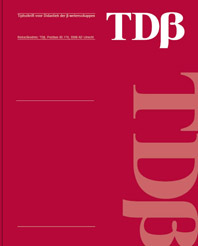Mijmeringen over mechanica-onderwijs

Tijdschrift voor Didactiek van de Beta-wetenschappen, uitgegeven door het Freudenthal Instituut, Universiteit Utrecht in de periode 1983-2014 |
Freudenthal, H.
Tijdschrift voor Didactiek van de Beta-wetenschappen |
Reviewing Van Genderen’s Ph.D Thesis (1) had been put out to a mathematician who in the course of time had become ever more involved in mathematics education. As early as 1953 he had fought the traditional teaching of mechanics as kind of applied mathematics at the modern schools in The Netherlands (2). Eventually mechanics was abolished as an independent subject at our schools. This mathematician could not boast about much knowledge in theory and practice of teaching physics, except for incidental experiments with children (3), and kind of research, intended to uncover misconceptions on fundamental mechanical ideas such as force. He knew, however, that many educationalists consider it as the teacher’s task to expel common sense ideas, which ought to be replaced with scientific ones. In mathematics education he cherishes the opposite view. Considering mathematics itself as common sense (4) he chose for the principle of mathematics starting and continuing as -ever refined- common sense, by "guided reinvention". In mechanics, a fundamental idea is that of force, as proves history (5). The thesis under review is based on the textbook developing work of PLON (6), Physics in Themes. In the case of force their interpretation of "theme" looks like a strait-jacket and an approach on too high a level, or so it seems to the present author. Rather than a review, he has tried a didactical phenomenology of the idea of force, not unlike the one he applied to mathematical structures (7). Here he has elaborated it all the way from the muscular experience to its mathematisation. "Wrong" ideas on force have been placed in the same context.
U moet ingelogd zijn om een reactie te kunnen plaatsen.


